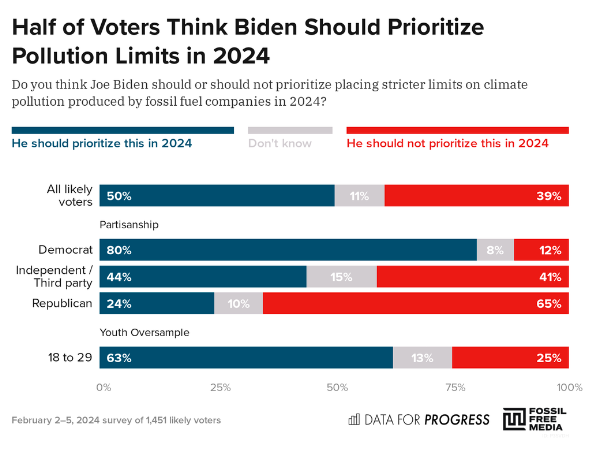Resources
Search below for resources covering the intersection of climate engagement, social science and data analytics.
RESULTS
International Public Opinion on Climate Change: Extreme Weather and Vulnerability, 2023
Large majorities in every country and territory surveyed said they have experienced an extreme weather event. This report describes self-reported public exposure to and preparedness for extreme weather disasters among Facebook users in 73 countries, territories, and geographic groups (hereafter referred to as “areas”) that are classified as “low-emissions” based on both their below-average per-capita CO2 emissions and low per-capita income. Majorities in all countries and territories reported experiencing an extreme weather event.
Environmental Polling Roundup - March 22nd, 2024
This post includes climate and environment headlines, data points, and key takeaways from recent public polls - including newly released polling on the Sackett v. EPA decision and clean water protections, new polling on oil and gas accountability, and a new analysis on the gap between Americans’ interest in climate activism and their actual behaviors.
HEADLINES
The attitude-behavior gap on climate action: How can it be bridged?
There is a large gap between people’s interest in climate activism and their self-reported actions. Social norms are linked with increased follow-through. First, there is a big difference between those who say that they “definitely” or “probably” would take an action. Americans who follow through on climate activism tend to feel more social pressure to do so.
The 2024 Community Power Scorecard
The 2024 Community Power Scorecard from the Institute for Local Self-Reliance provides a measure of state policies related to energy democracy and utility accountability. State scores suggest lawmakers must take immediate action to improve. Of the 50 states and D.C., only one state scraped an above average grade (a B), 11 hit the C average, 13 received Ds, and 26 states received a failing F grade. This annual scorecard goes beyond greenhouse gas reductions or renewable generation capacity to evaluate how state policies help or hinder local clean energy action.
Nearly All U.S. Voters Believe It's Important To Protect the Nation's Water, Poll Finds
Voters are largely unaware that the Supreme Court weakened the Clean Water Act, and overwhelmingly want to restore protections for wetlands and waterways. The most effective messaging on the topic emphasizes how wetland protections help to ensure access to clean and safe water. 86% of voters agree that farmers should be subject to clean water requirements to help protect downstream water quality. 80% of voters are concerned that the Supreme Court narrowed the scope of the Clean Water Act.
Poll: Voters Support Holding Oil and Gas Companies Accountable and Want to See Stricter Pollution Limits
Voters distrust fossil fuel companies and the politicians that they fund, and want to see fossil fuel companies held accountable for their pollution. 84% of voters are concerned about oil and gas companies making large profits while consumers face rising energy bills. 78% of voters agree that “oil and gas companies that knew about the polluting impact of burning fossil fuels, but that intentionally misled the public about it, should be held accountable”.
Environmental Polling Roundup - March 15th, 2024
This post includes climate and environment headlines, data points, and key takeaways from recent public polls - including new polling about President Biden’s record on climate change and clean energy + new research on messaging about electric vehicles.
HEADLINES
Poll: Strong support for the EPA implementing stricter limits on carbon emissions from heavy-duty vehicles
How's IRA doing?
Is the Inflation Reduction Act, passed nearly two years ago, doing what it set out to do? In this episode, Trevor Houser of the Rhodium Group compares the predictions of pre-IRA energy-sector models to the real-world data on clean-energy investment since its passage.
Environmental Polling Roundup - March 8th, 2024
This post includes climate and environment headlines, data points, and key takeaways from recent public polls - including new polling on climate change as an issue in the presidential election, new polling on the Inflation Reduction Act, and new polling on EPA standards for particle pollution and vehicle emissions.
HEADLINES
Climate Power
Pagination
- Previous page
- Page 3
- Next page





